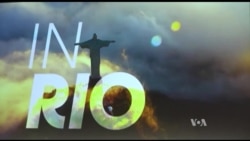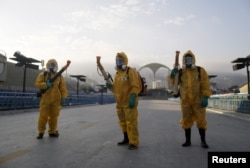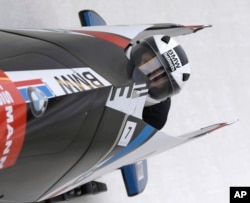Behind the 2016 Summer Games in Rio de Janeiro, Brazil, is another competitive sport: the Olympics of marketing. This summer, corporate sponsors will be tasked with engaging fans, enhancing product value and translating partnerships into revenue.
Their greatest challenge? They must make their pitch in only 17 days in August, when billions of viewers are expected to tune in — as they did at the Olympics in Beijing (2008) and London (2012), with estimated viewership of 3.5 billion and 3.6 billion, respectively.
But with great power comes great responsibility.
A government in crisis, a massive Zika outbreak and concerns about sewage-infested waterways — all on Brazilian soil — have posed a unique challenge for the International Olympic Committee (IOC), which remains invested in ensuring the health of its athletes and profitability of the games.
Now, add to the mix the 2015 FIFA corruption scandal investigation into top international football officials and corporate sponsors. Still, Olympic officials have not flinched.
"Stewardship of our brand and our properties is something we take very seriously," said Lisa Baird, chief marketing officer of the U.S. Olympic Committee (USOC), in an interview with VOA.
She said 82 cents out of every dollar raised goes directly to fund national governing bodies and sports. "We know how we spend the money, and the money we raise has to be as transparent as possible," Baird added.
The nonprofit USOC is responsible for managing and ensuring the success of American athletes both on and off the field. According to its 2014 financial report, corporate sponsorships — those "involving the right to use Olympic/Paralympic marks and terminology over a contract term" — made up 42 percent of its overall revenue from 2013 to 2014.
This year, Baird hopes to build on USOC resources for Team USA, in large part through an athlete storytelling campaign geared at winning fans' hearts and minds and increasing a sense of brand loyalty among them, "so that they become increasingly invested in the success of the Olympic movement."
Full sprint ahead
Like the USOC, Olympic sponsors are ready for the sprint ahead. At this year's Leaders' business summit in New York City, international corporate partners described methods to ensure financial success in August.
Procter & Gamble (P&G) — which signed with the IOC in 2010 as a TOP Partner, one of 10 official sponsors of the Rio 2016 Olympic Games and all competing teams — plans to build upon the wildly successful "Thank you, Mom" ad campaign it has had since the 2010 Olympics to generate sales and grow its base of loyal customers worldwide.
Janet Fletcher, P&G brand director of Olympics & Sports Marketing, said the "massive awareness" that the Olympics brings every two years inspires creativity from agency partners.
"You've got, all of a sudden, this one big stage from which you can launch a new campaign," Fletcher said. "From Pampers [diapers] with sponsoring future athletes and Olympic dreams, with Gillette's [razors] great starts ... the creativity that is coming from all these different campaigns, I think, is there in part because they know how big a world stage it is."
Paralympic Games
The luxury car company BMW, a domestic partner for Team USA, has its eyes set on the Olympics' biggest prize: the gold medal.
Trudy Hardy, vice president of marketing of BMW North America, wants its brand associated with American wins, as it accomplished during the 2014 Sochi Winter Olympics: a bronze-medal finish in two-man bobsledding, using what NBC commentators coined the "ultimate sliding machine," designed by BMW Designworks USA.
But in addition to the Olympics, Hardy says she wants 2016 to be the year people take greater notice of the Paralympic Games.
"So much focus and attention go to the able-bodied athletes," Hardy said. "It's a really tug-on-the-heartstrings of the things that we take for granted every single day in what these athletes do, and they want to be viewed as independent achievers in their own right."
This year, BMW's newly designed racing wheelchair will make its debut and be put to the "ultimate" test by the U.S. Paralympic Track & Field Team.







